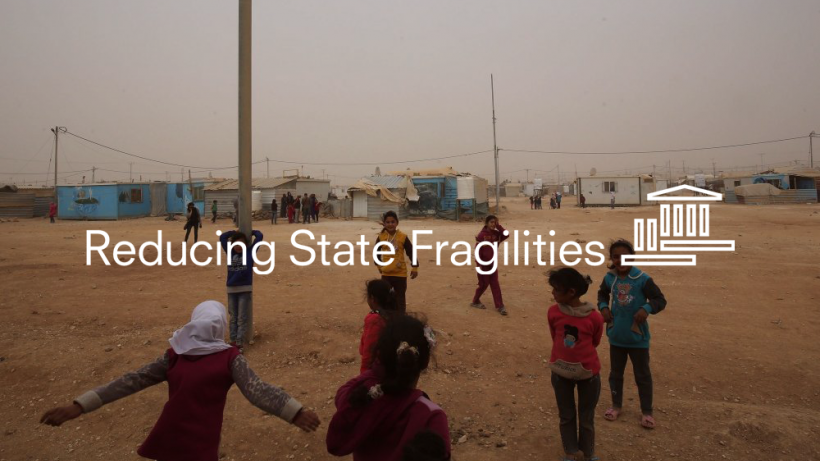
New grant from The Rockefeller Foundation supports efforts to better address state fragility
The Rockefeller Foundation has extended its philanthropic support to the International Growth Centre.
The Rockefeller Foundation has extended its philanthropic support to the International Growth Centre (IGC) with a grant of $250,000 to support the IGC’s new policy initiative, Reducing State Fragilities, which aims to build on the LSE-Oxford Commission on State Fragility, Growth and Development by taking its recommendations into practice.
A previous $900,000 grant from the Foundation to the IGC in 2015 supported a three-year project between the IGC and the government of Sierra Leone to strengthen the country’s community health worker system in the wake of the 2014 Ebola epidemic that devastated Sierra Leone. That grant enabled the revision of Sierra Leone’s community health worker policy and led to considerable progress in increasing the institutional capacity of the country’s community health care system, building functionality and future resilience.
This most recent grant from the Foundation recognises the critical global policy salience of state fragility. State fragility is increasingly seen as a key driver of extreme poverty, and of the mass migration, terrorism, and trafficking that has sparked global insecurity in an increasingly interconnected and interdependent world. Addressing these challenges and advancing inclusive economic growth to eradicate extreme poverty by 2030, as mandated by the Sustainable Development Goals, necessitates confronting the difficulties that state fragility poses for development. The IGC’s establishment of the Reducing State Fragilities initiative recognises the need for rethinking approaches to state fragility at both global and national levels. The current Covid-19 pandemic has further highlighted this need as it poses a particularly difficult challenge in fragile settings.
Through Reducing State Fragilities, the IGC intends to bring new evidence and new thinking on addressing state fragility into key global fora, including through supporting the DFI Fragility Forum, a forum of almost 30 development finance institutions working collaboratively to increase the effectiveness of their operations and investments in fragile contexts. Additionally, Reducing State Fragilities will provide support at the national level to governments of states undergoing pivotal moments where international assistance may support a transition out of fragility. Paul Collier, one of the academic leads of the Reducing State Fragilities initiative, stated that, “In contexts of state fragility, we face radical uncertainty – and identifying effective approaches to address state fragility requires experimentation and active learning. This is what we hope to achieve in our work with national and international actors.”
Reducing State Fragilities has also established the Council on State Fragility, which is composed of eminent world leaders who have a deep understanding of the opportunities and challenges in addressing state fragility. Chaired by President Ellen Johnson Sirleaf, David Cameron, and Dr. Donald Kaberuka, the Council will provide strategic and policy leadership to the initiative, advance new ideas and evidence-based thinking in global fora and with national policymakers, and work to build consensus on new approaches to address state fragility among major international institutions and countries affected by conflict and fragility. To this end, the IGC is particularly excited to welcome Dr. Rajiv Shah, President of The Rockefeller Foundation, as a Council member.
“The work of the Reducing State Fragilities initiative has arguably never been so urgent, and the IGC is grateful for the support and partnership of The Rockefeller Foundation, which has made it possible for us to support policymakers and promote collaboration among international institutions at this critical time,” said Jonathan Leape, Executive Director of the IGC.

